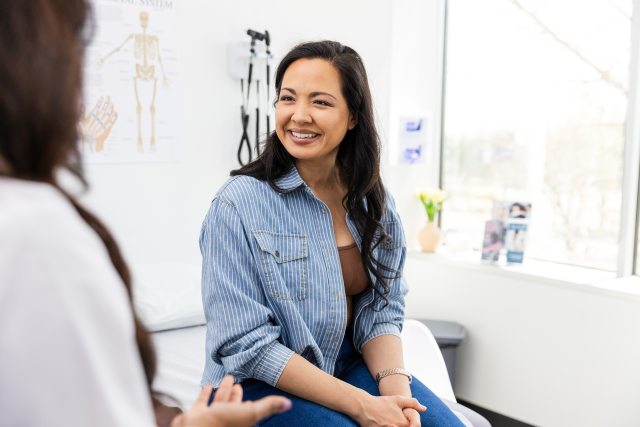Primary care can do this better than anything else

Even if you get care at other places, your PCP is your “go-to” for healthcare needs throughout life.
Staying healthy isn’t always easy. At times, it can be incredibly difficult.
That’s why it’s good to have a primary care provider. A PCP is your “go-to” for care and counsel throughout life.
Even so, there might be times when you get care somewhere else. Maybe you go to an urgent care or drop-in clinic for a sudden urinary tract infection or a dog or cat bite.
Or you go to the ER for heart attack symptoms or a severe allergic reaction to being stung by a bee. Maybe you see a specialist to have knee surgery or to get treatment for cancer.
In these situations, your needs are either handled quickly or by someone with special expertise and equipment. But providers like cardiologists or oncologists aren’t focused on everyday concerns like a respiratory virus or mental health.
Primary care, on the other hand, is intended to help you and your family manage your day-to-day healthcare needs. In many ways, it’s your “medical home base” — the first place to turn when you have needs or questions about your health.
“Partnering with your PCP can really pay off in the long run,” says Sarah Winslow, MD, a provider with PeaceHealth in Vancouver, Washington. “We care for the whole person and help our patients foster healthy habits to prevent disease and live their best lives.”
Here’s where primary care shines:
- Helping you in sickness and in health. When you’re injured or not feeling your best, your PCP can treat you or refer you to another provider who can offer specialty care. When you’re healthy, your PCP can help you set health goals and provide personalized guidance.
- Helping you manage chronic conditions. If you have one or more ongoing conditions such as diabetes, depression or heart disease, your PCP can help you manage medications or other treatments. They also partner with specialists such as rheumatologists, cardiologists or endocrinologists if you need this kind of care. While those specialists help you with a specific condition, your PCP understands how the chronic condition fits into your overall lifestyle and wellness habits.
- Providing follow-up care. If you went to an ER or urgent care clinic, you might have been told to see your PCP later. That’s because you might need additional care beyond that visit. And your primary provider knows you better than someone who has seen you one time. Let your PCP know that you’ve been seen somewhere else. Then your PCP has a more complete picture of your health and how to help you in the future.
- Helping you understand what health news means to you. If you’ve seen ads or news items of interest, ask your PCP for trusted advice. Is there a new medication, diet or other development you want to try? See what your PCP has to say. They can give you perspective based on scientific evidence and what’s best for you.
Here are a few ways to make primary care work for you:
- Get regular check-ups. Seeing your PCP about once a year is a good way to stay current or catch up on needed care. You can share changes since your last visit. Your provider might have other recommendations based on your age or family history, too.
- Get preventive care. Immunizations can help you avoid getting sick. And having screenings can find and treat potential concerns early, before they become more serious.
- Use My PeaceHealth. This free online tool can help you keep your PCP updated on other visits or care you’ve had outside of their clinic. That gives them a full picture of your health and you can work together from the same information. The portal also gives you a secure way to see and track information about your care at PeaceHealth. Learn about My PeaceHealth.






